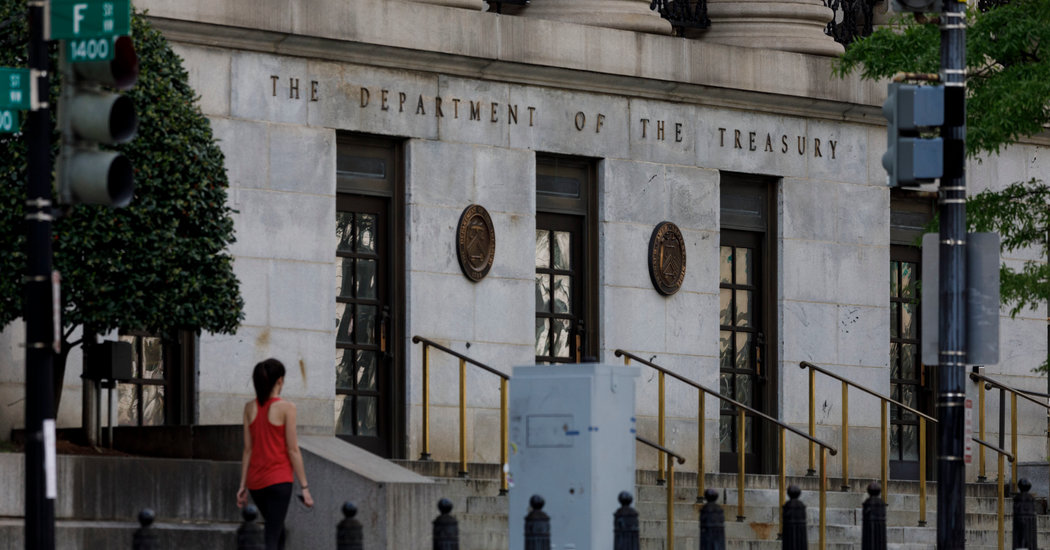The Internal Revenue Service on Tuesday made it easier for employers to allow workers to make adjustments to their health insurance plans and flexible spending accounts in response to the coronavirus pandemic.
Normally, strict rules prevent employees from changing health insurance plans in the middle of a year. But the I.R.S. is giving employers a way to let workers make changes without waiting for the usual enrollment period.
Under the new guidance, employers can let their workers drop out of their health insurance if they have another option, or sign up if they failed to earlier in the year. Workers could also be allowed to add more family members to their plan, or switch from one workplace plan to another.
The change doesn’t require employers to offer these options; they must opt in if they want to give their employees the added flexibility.
Doing so will involve some administrative headaches — managing insurance sign-ups is a major task that many companies may prefer to keep to once a year. But several employer groups have been lobbying the Treasury Department for these new options, suggesting that at least some businesses want their workers to have them.
The changes could make it easier for workers who are furloughed to drop benefits temporarily and resume them when they return to work. They may also be attractive to workers who decided against buying health insurance earlier in the year but feel different now that they are worried about their risk of catching the coronavirus.
Cynthia Cox, a vice president at the Kaiser Family Foundation, a health research group, said employers might want new flexibility as a way of encouraging reluctant employees to return to work during the pandemic.
“I can imagine being an uninsured worker and being hesitant about returning to work and exposing myself to the virus without having health insurance,” she said.
The new flexibility for workplace health plans stands in contrast to the Trump administration’s policy on health insurance for people who buy their own coverage. Officials at the Centers for Medicare and Medicaid Services declined to establish a special period that would allow uninsured people to easily enroll in health plans on the individual market. Instead, health officials said people who remained uninsured but needed hospital care for Covid-19, the disease caused by the coronavirus, would be able to obtain such care for free.
Under the new guidance, employers will also be able to allow workers to make changes to pretax flexible spending accounts that pay for health expenses and dependent care.
The pandemic has changed the math for both kinds of accounts, limiting options for spending money that has been set aside. Many people have postponed elective medical procedures, and many child-care services — preschools, after-school programs and summer camps — have closed down. Workers who leave money unspent forfeit the cash.
If employers allow it, employees could enroll in a flexible spending account offering in the middle of this year, and they could decrease or increase the amount they are setting aside, up to the usual account limits.
Employers may also offer exceptions on rules for rollovers. For instance, people who had money left over from a plan that ran on the 2019 calendar year may be able to get the rest of this year to spend it. Other plans that normally end their 12-month spending period in May or June could get the same extension.
The new guidance does not allow for extensions for flexible spending accounts that began their year in January. People in those accounts can, however, halt their savings now, in most instances, and try to spend what they’ve accumulated so far before they must forfeit it next year.



